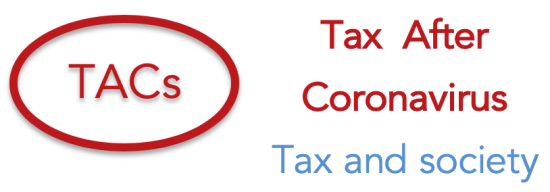 As was discussed in the introduction to this section on Tax and Society within the Tax After Coronavirus (TACs) project, tax has at least six roles to play in any society. Repricing goods and services is one of those roles. This section explores that issue.
As was discussed in the introduction to this section on Tax and Society within the Tax After Coronavirus (TACs) project, tax has at least six roles to play in any society. Repricing goods and services is one of those roles. This section explores that issue.
Repricing goods and services
Just as markets do not always produce desired outcomes for incomes and wealth, nor do they when it comes to the pricing of some goods and services. This is for a number of reasons.
Some goods and services are just too expensive for everyone to afford in some jurisdictions but are nonetheless considered essential items. The tax system can then be used to effectively subsidise these items e.g. by cancelling sales taxes that might otherwise be charged on them.
Other goods and services are considered to be worth subsidising with tax reliefs because they are believed to be socially useful. The favourable tax treatment given to pension saving in many countries might be considered to fall into this category. It is presumed that a tax subsidy to a person who wishes to save in their pension arrangement whilst they are working will give rise to a cost-saving to a government when that same person is in retirement, and that this trade-off is sufficiently worthwhile to justify tax relief at the time that a person saves.
There are also items whose production a state might want to encourage. Exports are very often in this category. As such they tend to be exempt from all sales taxes. In contrast, imports might be subjects to tariffs with the intention of supporting local business.
However, by far the most common types of goods and services that are subject to tax repricing are those items thought to be socially harmful where it is also believed that the market price fails to reflect the full cost to a society of the use of that product. Examples include tobacco products, alcohol, cars, carbon-based fuels and other similar types of product. The fact that demand for many of these products is what an economist would call inelastic, meaning that demand varies little in proportion to price, does tend to encourage the use of these items as tax bases, and some say that is the true reason why additional taxation of them began. What is now, however, commonplace is that the tax charges added to these products are intended to compensate for the fact that they impose unseen costs, either in the form of pollution or health risks, that the market does not price and which additional tax can compensate for.
As with almost everything to do with tax, there will be some jurisdictions where some or even none of these taxes will exist, but overall they are commonplace throughout the world and most countries will have at least some examples. Their effectiveness is debated, and the lack of willing by most governments to tax what they identify to be harmful activities at rates sufficient to discourage them altogether suggests that government commitment to such taxes may be limited by the relatively strong revenues that these taxes tend to generate, or alternatively by a belief that to overtax such activities might, instead, drive them into the illicit economy which could create an overall worse social and economic outcome. This does not, however, undermine the fact that this issue is a reason to tax.
Thanks for reading this post.
You can share this post on social media of your choice by clicking these icons:
You can subscribe to this blog's daily email here.
And if you would like to support this blog you can, here:



Sorry, not a response to the above, but please can you explain why short selling is even legal? I ask prompted by this article: https://www.opendemocracy.net/en/dark-money-investigations/burberry-makes-ppe-nurses-and-doctors-brexiteer-hedge-funder-shorts-its-stock/
Does shorting ever serve a useful purpose- other than to make a few people very rich?